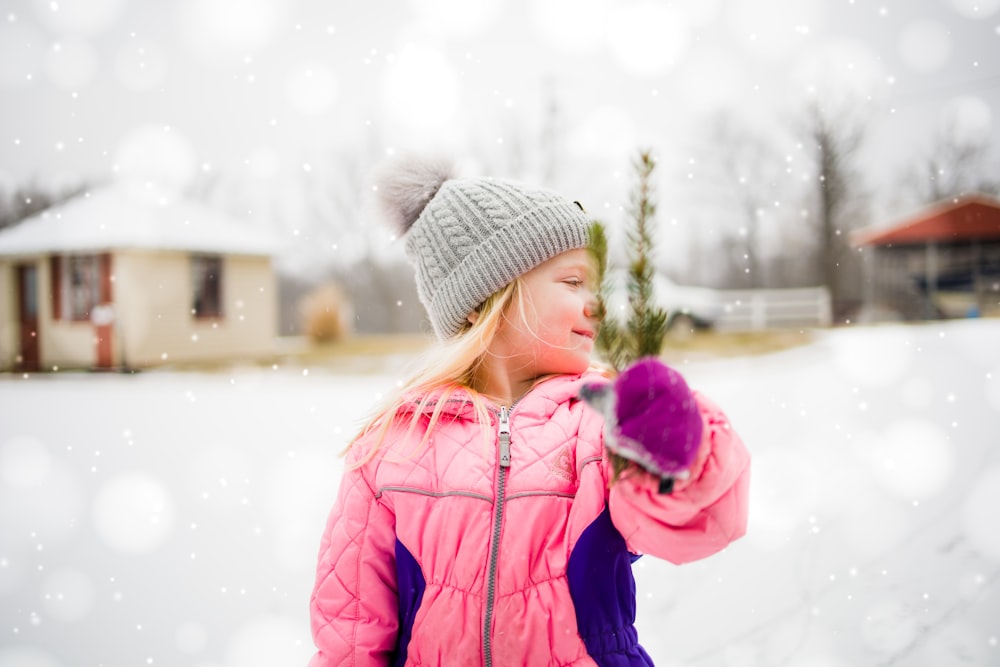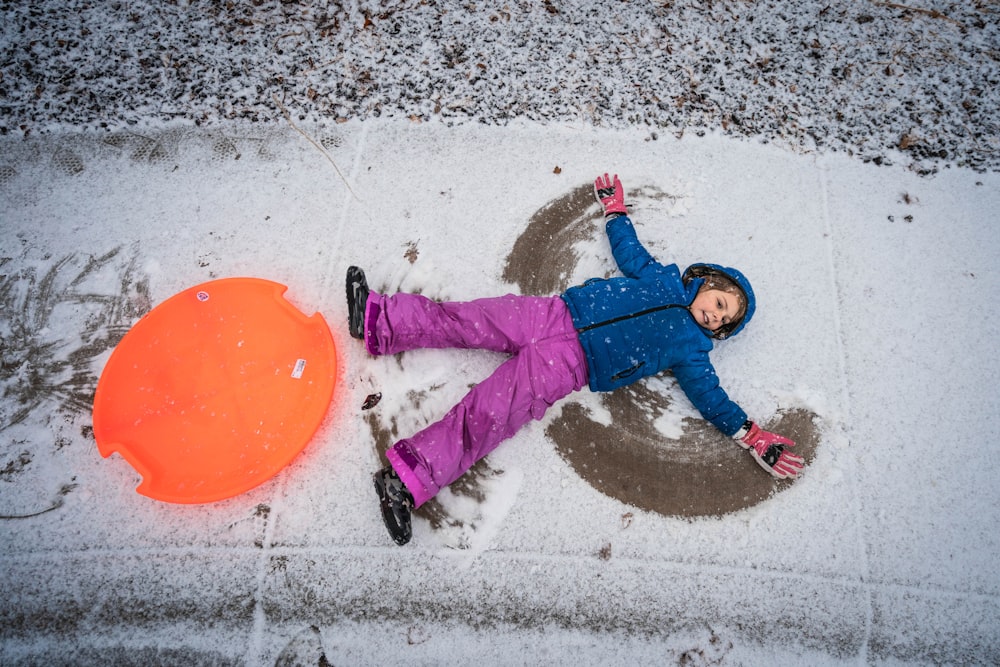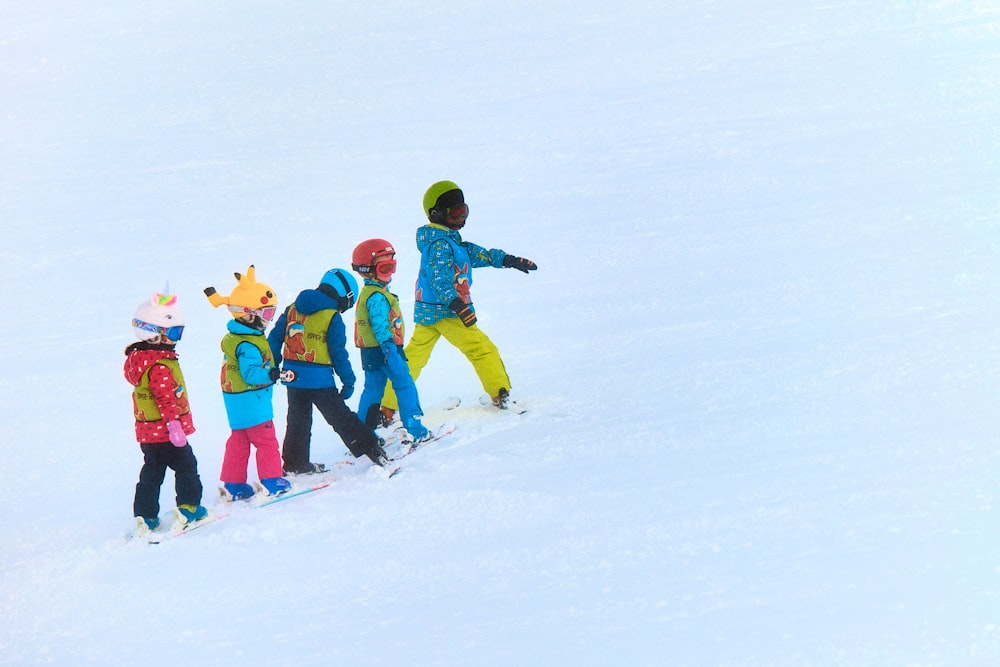
If you’re guilty of staying indoors with your kids all winter and not letting them play outside very often, you’re not alone. However, staying cooped up in the house all winter long is not good for the health of you or your kids. In fact, staying indoors all winter to avoid the cold weather will just force your kids to play with their electronic gadgets more, promoting a sedentary lifestyle with too much screen time.
Participating in outdoor activities as a family, or organizing outdoor play dates with their friends offers many benefits for your kids. From the health benefits of fresh air, exercise and socializing to vitamin D and improving their mood, there are plenty of reasons to let your kids play outside more often this winter. If the weather outside is extremely cold, snowy or windy, you can implement safety precautions to prevent dehydration or illness. Dress your kids warmly with layers, a warm hat, ear muffs and warm boots. Bring individual water bottles when you go outside with them.
The dropping temperatures should not be a reason to keep your kids imprisoned indoors. In fact, studies indicate that playing outdoors in winter is fantastic for the happiness of your kids. It’s a common fallacy to believe that playing outside in cold weather will automatically make your kids sick.
Fresh winter air and exposure to daylight is good for the whole family. Outdoor winter activities for kids such as ice skating, snowman building and sledding should be encouraged this season. These outdoor winter activities will keep your kids entertained, healthy, happy, physically active, and imaginative this winter season while helping them stay away from the screens. Below are some reasons why you should let your kids play outside this winter, and get out of the house with them:
Outdoor Play Means Less Exposure to Interior Germs

Parents often refrain from letting kids play outside for fear of them returning home with a virus. Though the flu season is associated with the winter months, the cold temperature alone does not cause sickness. In fact, outdoor play can reduce exposure to bacteria and germs. Why? Because people generally spend more time indoors; thereby, making it easier for pathogens to spread inside the home. Letting children outside means they limit exposure to the same contaminated air.
Playing Outside Boosts Immunity
Outdoor fun boosts your kids’ immune system, making them less prone to sickness. For instance, plants emit phytoncides which are antimicrobial organic compounds. If they play outside, your kids will directly inhale these helpful organic materials, which in turn builds their immunity.
Enjoying Fresh Air is Fantastic for our Health
A stuffy home doesn’t just build up bacteria, but the dry air coming from the HVAC can result in respiratory issues, dry skin, nosebleeds, and migraines. Thus, going outside to inhale fresh air provides that much-needed respite from stuffy interior air. Watch how everyone’s mood improves upon inhaling fresh air.
Fresh air is good for the brain, mood, and the body.
Being Outside Encourages More Movement
Staying cooped up promotes cabin fever and restlessness. If you want your kids to avoid the winter blues, you must find ways to commune with nature because earthing or grounding is proven to relieve stress and improve mood. Besides, outdoor activities promote physical movement which your kids need to prevent weight gain and the onset of chronic diseases.
Playing Outside Provides Your Kids with Vitamin D
Staying indoors makes people prone to vitamin D deficiency because of lack of sun exposure. This is bad for growing kids because vitamin D is essential for bone growth. The body must have sufficient levels of vitamin D so it can store calcium. Besides, this vitamin influences serotonin levels, which affects mood. Avoid SAD or seasonal affective disorder with sun exposure.

Outdoor Play Facilitates Socialization, Creativity and Imagination
Outdoor fun with family and friends boosts socialization, and kids can get creative building snow creatures or playing in nature. Interacting with other kids outside also teaches your kids how to share, adjust, and resolve conflicts. Play hones the executive function, allowing kids to improve problem-solving, negotiating, planning, and multi-tasking skills. Creative play (which tends to happen outdoors more often than indoors) also exercises your kids’ motor skills and stimulates their imagination.
How to Prioritize Winter Outdoor Play Safety
It’s not unsafe to play outside in the winter if you pack safety items and dress your kids appropriately. Reframe your mindset and think of winter as offering fun, new opportunities rather than safety issues. Though winter comes with risks due to the cold temperatures, you can mitigate them with preparation and precautions. Take note of the following tips:
Dress Properly in Layers
Wear layers to insulate your body from the cold. Start with long underwear that wicks moisture so sweat doesn’t linger on your skin. Then add layers like a sweater, hoodie, and water-resistant coat and pants. These items will allow you to stay warm and comfy, without getting wet. If you’re travelling somewhere far by car, it’s a good idea to have a fresh set of clothes with you. Don’t forget snow boots, thick socks, gloves or mittens, a scarf, and a warm bonnet. The warm hat is vital because your kids can lose approximately 50% of their body heat via their heads.

Wear Sunscreen
Even if it’s winter and the sun is hiding, the UV rays can still penetrate through thick cloud barriers. Thus, it is critical to protect your kids’ skin with at least SPF30 applied to their face. If you intend to stay outdoors for some time, use higher SPF or reapply.
Stay Hydrated
Give your kids a light snack before outdoor play to boost their energy. And more importantly, hydrate them with water. If you are going somewhere far, consider packing a thermos of hot cocoa so you can replenish the body’s water stores while having a yummy treat to warm up.
Protective Winter Gear
If your kids intend to play outdoor sports like ice hockey, skating, tubing, or sledding, make sure they have a helmet, knee pads, mouth guards and other safety gear. Most of all, double-check to see if boots are properly tied and strapped to avoid accidents.
If the extra preparations sound like a lot, note that it’s worth the extra effort to ensure your kids get fresh air, exercise and exposure to daylight this winter.






